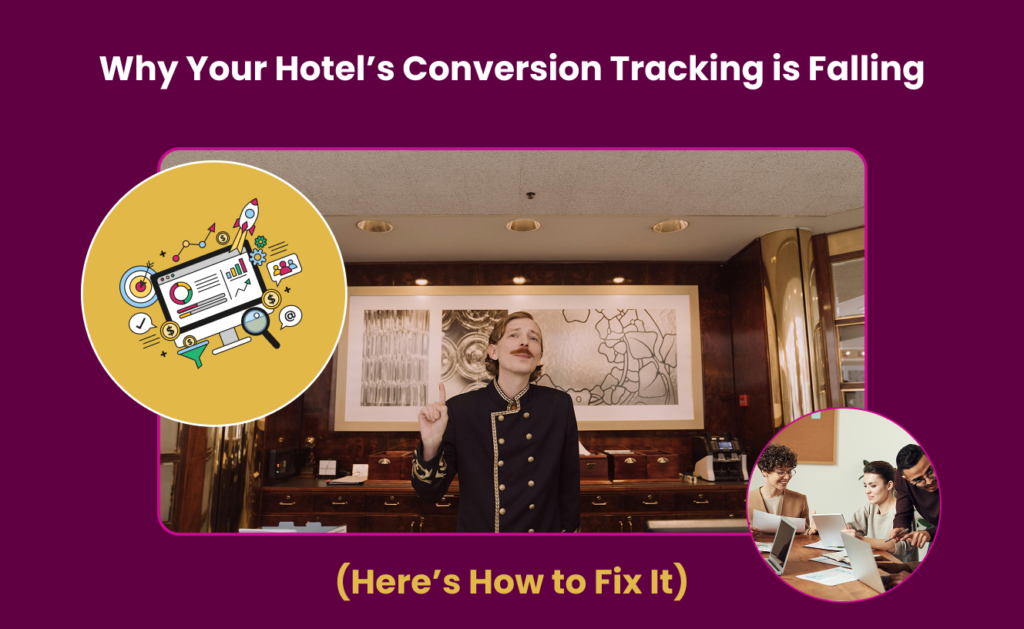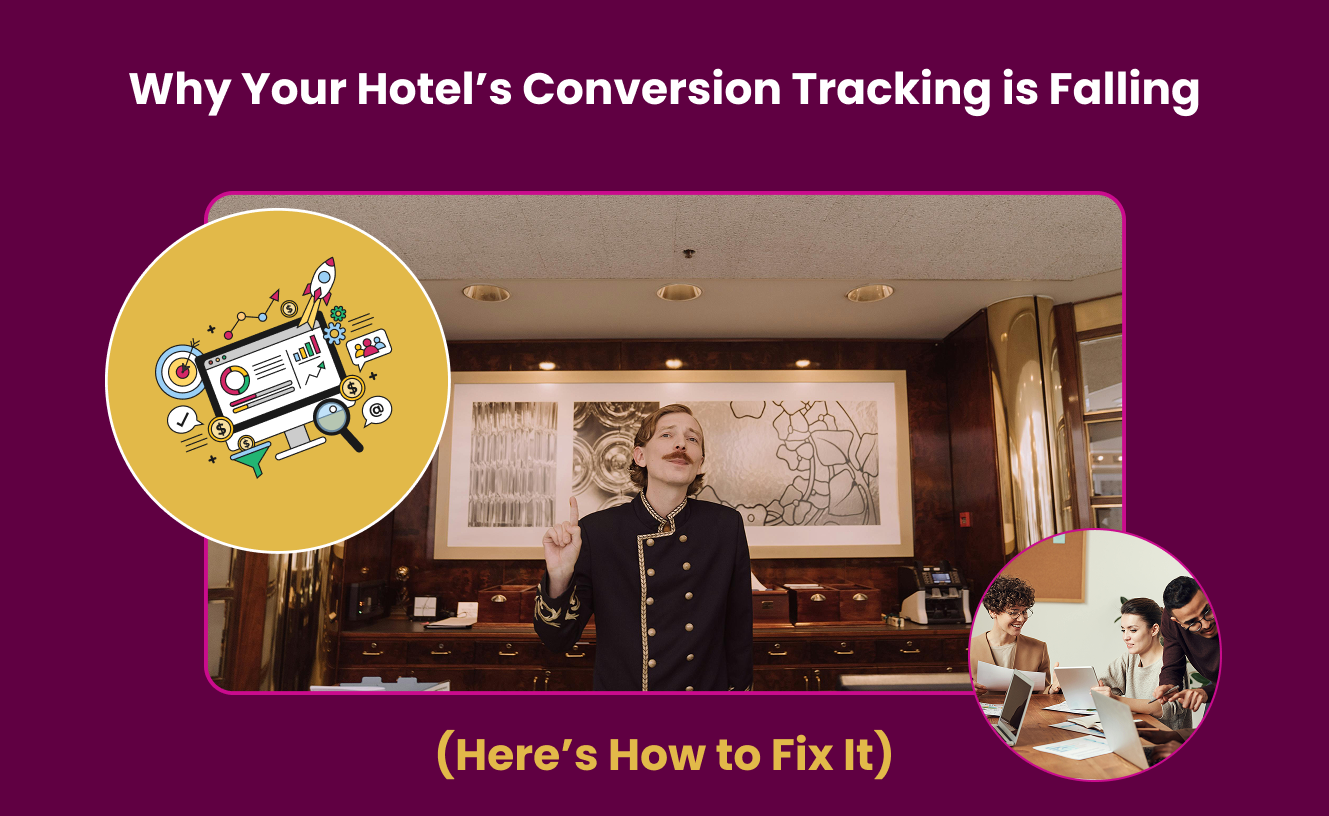
Imagine this – Your hotel’s marketing campaigns are running smoothly, your ads are live, and traffic is flowing to your website.
Yet, when you check your bookings, the numbers don’t add up. What’s going wrong?
The culprit might be faulty conversion tracking.
Understanding Conversion Tracking
Conversion tracking is like the GPS of your marketing efforts.
It tells you how many visitors complete desired actions—like booking a room or signing up for your promotions—after interacting with your ads.
Without accurate tracking, you’re essentially navigating in the dark, unsure if your strategies are leading to success or a dead end.
Common Conversion Tracking Mistakes
1. No Conversion Tracking at All
Surprisingly, some hotels operate without any conversion tracking. This oversight means there’s no data to analyze, making it impossible to measure the effectiveness of your marketing campaigns.
Solution: Implement a robust conversion tracking system using tools like Google Analytics. Start by setting up goals that align with your business objectives, such as completed bookings or contact form submissions.
2. Not Tracking All Conversion Actions
Focusing solely on one type of conversion—like direct bookings—can cause you to overlook other valuable actions guests might take, such as signing up for newsletters or engaging with chatbots.
Solution: Identify and track all meaningful interactions on your website. This holistic approach provides a comprehensive view of guest engagement and potential revenue streams.
3. Tracking Non-Conversion Events as Conversions
Counting every click or page view as a conversion can inflate your data, making it seem like your campaigns are more successful than they truly are.
Solution: Define what constitutes a conversion for your hotel. Focus on actions that directly contribute to revenue or guest engagement, ensuring your data reflects true performance.
4. Incorrect Implementation of Tracking Codes
Misplaced or faulty tracking codes can lead to inaccurate data, causing you to make decisions based on misleading information.
Solution: Regularly audit your website’s tracking codes. Use tools like Google Tag Assistant to verify that all codes are correctly installed and firing as intended.
5. Ignoring Mobile Conversions
With the rise of mobile bookings, neglecting to track mobile conversions means missing out on a significant portion of data.
Solution: Ensure your tracking systems are optimized for mobile devices. This includes responsive design and mobile-specific tracking codes to capture all user interactions accurately.
Steps to Fix Conversion Tracking Issues
1. Conduct a Tracking Audit
Review all current tracking mechanisms on your website. Ensure that each is correctly set up and aligns with your marketing goals.
2. Implement Comprehensive Tracking
Beyond just bookings, track other valuable actions like newsletter sign-ups, social media shares, and contact form submissions. This provides a fuller picture of guest engagement.
3. Use Tag Management Systems
Tools like Google Tag Manager simplify the process of adding and managing tracking codes, reducing the risk of errors and ensuring consistency across your site.
4. Regularly Test and Update
Technology and user behaviors change. Regularly test your tracking systems to ensure they’re up-to-date and functioning correctly, adapting to any new trends or tools.
Conclusion
Accurate conversion tracking is the backbone of effective hotel marketing.
By avoiding common pitfalls and implementing precise tracking strategies, you’ll gain clearer insights into your campaigns, leading to informed decisions and, ultimately, more bookings.
Remember, in the world of hospitality, understanding your guest’s journey is key to providing exceptional experiences and driving success.
Happy Marketing!
Team Plumfind


Leave a Reply